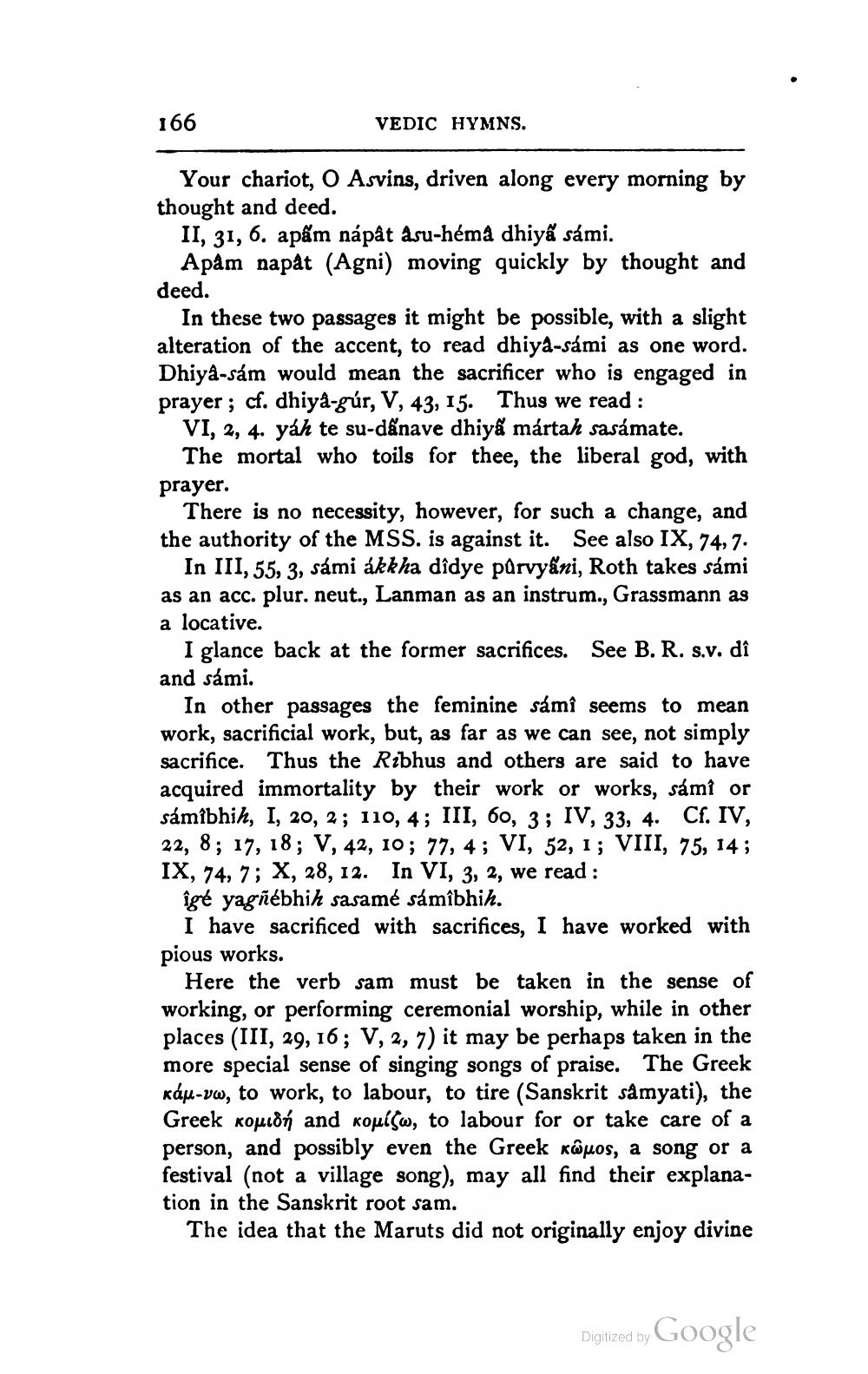________________
166
VEDIC HYMNS.
Your chariot, O Asvins, driven along every morning by thought and deed.
II, 31, 6. apám nápât asu-héma dhiya sámi.
Apam napát (Agni) moving quickly by thought and deed.
In these two passages it might be possible, with a slight alteration of the accent, to read dhiya-sámi as one word. Dhiya-sám would mean the sacrificer who is engaged in prayer ; cf. dhiya-gúr, V, 43, 15. Thus we read :
VI, 2, 4. yah te su-dấnave dhiya mártah sasámate.
The mortal who toils for thee, the liberal god, with prayer.
There is no necessity, however, for such a change, and the authority of the MSS. is against it. See also IX, 74, 7.
In III, 55, 3, sámi ákkha dîdye parvyäni, Roth takes sámi as an acc. plur. neut., Lanman as an instrum., Grassmann as a locative.
I glance back at the former sacrifices. See B. R. s.v. dî and sami.
In other passages the feminine sámî seems to mean work, sacrificial work, but, as far as we can see, not simply sacrifice. Thus the Ribhus and others are said to have acquired immortality by their work or works, sámi or sámíbhih, I, 20, 2; 110, 4; III, 60, 3; IV, 33, 4. Cf. IV, 22, 8; 17, 18; V, 42, 10; 77, 4; VI, 52, 1; VIII, 75, 14; IX, 74, 7; X, 28, 12. In VI, 3, 2, we read:
igé yagñébhih sasamé sámîbhih.
I have sacrificed with sacrifices, I have worked with pious works.
Here the verb sam must be taken in the sense of working, or performing ceremonial worship, while in other places (III, 29, 16; V, 2, 7) it may be perhaps taken in the more special sense of singing songs of praise. The Greek Káu-vw, to work, to labour, to tire (Sanskrit sâmyati), the Greek Koucón and kopícw, to labour for or take care of a person, and possibly even the Greek kĝuos, a song or a festival (not a village song), may all find their explanation in the Sanskrit root sam.
The idea that the Maruts did not originally enjoy divine
Digitized by
Digized by Google




